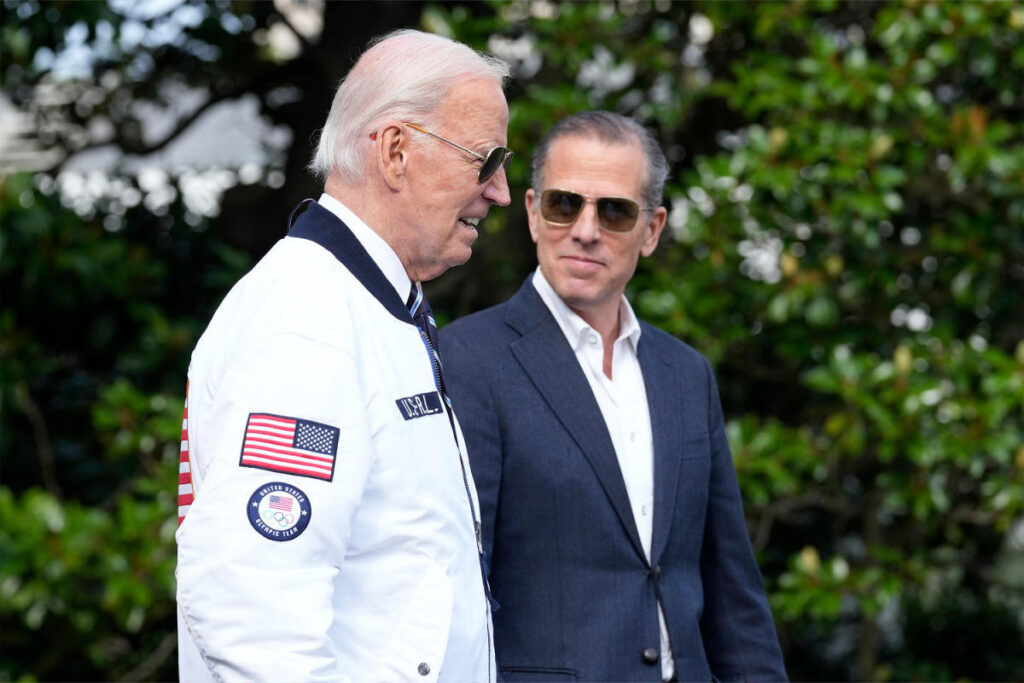On a recent Sunday, President Joe Biden announced a significant decision to pardon his son, Hunter Biden, who was facing sentencing for multiple federal offenses. Hunter was previously convicted on federal gun charges and had pleaded guilty to federal tax evasion charges in September. While the president had earlier stated he would not intervene in his son’s legal troubles, his abrupt change in stance has drawn criticism from both Republican and some Democratic circles. This decision marks a pivotal moment in a politically charged atmosphere, where the Biden family has faced scrutiny over Hunter’s legal issues and personal struggles.
In his statement regarding the pardon, President Biden emphasized his long-standing commitment to allowing the Justice Department to operate independently. However, he expressed deep concern over what he described as “selective and unfair prosecution” of Hunter, suggesting that the charges against his son were politically motivated. Biden pointed out that similar cases often result in non-criminal resolutions and argued that Hunter’s circumstances were distinct due to his familial relationship to the president. This narrative of political targeting resonated with Biden, who highlighted the distressing impact the legal actions have had on their family, both in terms of Hunter’s sobriety and broader family dynamics.
Biden also reflected on the pressures surrounding the case, specifically mentioning the influence of congressional opponents who allegedly instigated the charges against Hunter. He claimed that a previously negotiated plea deal, which was supposed to bring resolution to the matter, fell apart under political pressure. The president articulated a strong belief that the judicial system has been tainted by political motives leading to what he termed a “miscarriage of justice.” Through this lens, Biden positioned the pardon as necessary not only for his son’s well-being but as a statement against the politicization of legal processes.
Hunter Biden’s personal struggles have been the subject of intense public interest and scrutiny, especially in light of his battle with substance abuse. In his statement, Biden highlighted Hunter’s achievement of five and a half years of sobriety, framing it as a testament to his resilience in the face of significant challenges, including the relentless public and political attacks. The narrative that these attacks were intertwined with efforts to undermine the president himself added a layer of complexity to the situation, raising questions about the intersection of familial loyalty, justice, and politics in the Biden household.
The formal pardon, which President Biden documented through an Executive Grant of Clemency, covers all offenses that Hunter may have committed or been charged with between January 1, 2014, and December 1, 2024. This broad scope serves to eliminate any lingering legal concerns, essentially providing full and unconditional relief from prosecutorial repercussions. The pardon is officially recorded with the Department of Justice, and Biden’s decision resonates beyond just Hunter’s personal struggles; it represents a broader commentary on the integrity of the legal system in the face of political challenges.
In essence, President Biden’s decision to pardon Hunter is a complex interplay of familial duty and political reality, reflecting not only the challenges of being a public figure but also how personal and professional lives can collide within the framework of American politics. By framing the pardon in the context of a father’s love and the perception of justice, Biden aims to convey a message of fairness, urging the public to consider the implications of political motivations within the justice system. This situation remains emblematic of the broader societal debates surrounding justice, accountability, and the influence of politics in legal proceedings.

